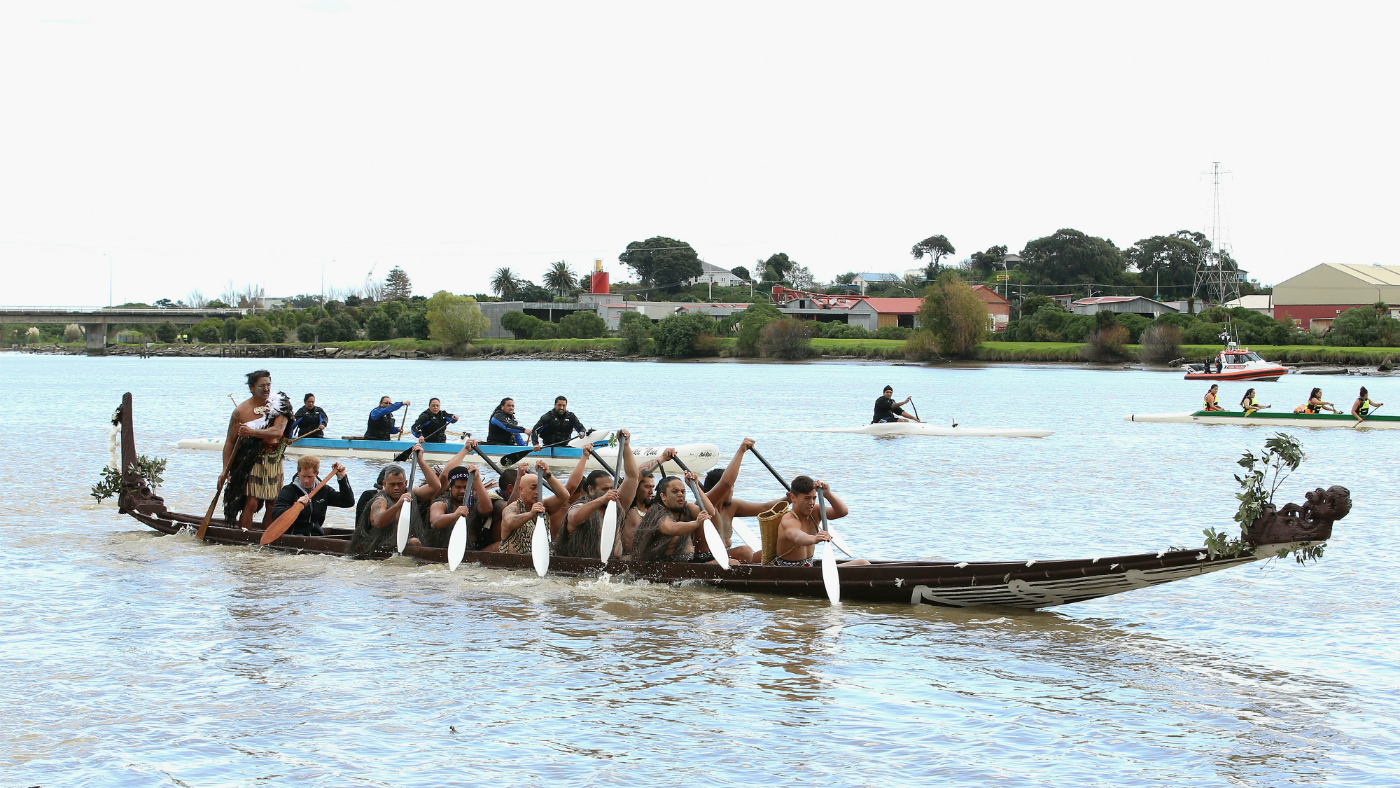New Zealand river 'must be treated like a person'
Legislation ends 140-year battle for Whanganui to be recognised as a Maori ancestor

A free daily email with the biggest news stories of the day – and the best features from TheWeek.com
You are now subscribed
Your newsletter sign-up was successful
A river in New Zealand has been granted the same legal rights as a human being, ending the longest-running legal dispute in the country's history.
The Whanganui, which is the third-largest river in New Zealand, is now considered by the country's parliament to be legally inseparable from the Maori people who claim it as their home.
The Whanganui tribe have fought for 140 years for the law to recognise the river as their ancestor.
The Week
Escape your echo chamber. Get the facts behind the news, plus analysis from multiple perspectives.

Sign up for The Week's Free Newsletters
From our morning news briefing to a weekly Good News Newsletter, get the best of The Week delivered directly to your inbox.
From our morning news briefing to a weekly Good News Newsletter, get the best of The Week delivered directly to your inbox.
Treating a river like a person is not unusual for the Maori community, who have a saying that goes: "I am the river and the river is me."
Hundreds of representatives from the tribe broke into a traditional song in parliament when their legal battle came to an end, the New Zealand Herald reports.
The river will be now be represented by two people; one legal guardian from the Crown and one from the Whanganui tribe, The Guardian reports.
Gerrard Albert, the Whanganui chief negotiator, says the ruling represents a victory against the "traditional model for the last 100 years of treating it [the river] from a perspective of ownership and management".
A free daily email with the biggest news stories of the day – and the best features from TheWeek.com
He says the tribe is not "anti-development" or opposed to the economic use of the river, but is simply seeking respect and the acknowledgement of their world view.
Treaty negotiations minister Chris Finlayson says he's aware that "some people will say it's pretty strange", but insists the river's new status is "no stranger than family trusts, or companies or incorporated societies".
Previous court rulings have enabled businesses to be treated like individuals under some aspects of the law, but this is the first time in history that a geographical feature has been granted legal personhood.
-
 Political cartoons for February 16
Political cartoons for February 16Cartoons Monday’s political cartoons include President's Day, a valentine from the Epstein files, and more
-
 Regent Hong Kong: a tranquil haven with a prime waterfront spot
Regent Hong Kong: a tranquil haven with a prime waterfront spotThe Week Recommends The trendy hotel recently underwent an extensive two-year revamp
-
 The problem with diagnosing profound autism
The problem with diagnosing profound autismThe Explainer Experts are reconsidering the idea of autism as a spectrum, which could impact diagnoses and policy making for the condition
-
 Epstein files topple law CEO, roil UK government
Epstein files topple law CEO, roil UK governmentSpeed Read Peter Mandelson, Britain’s former ambassador to the US, is caught up in the scandal
-
 Iran and US prepare to meet after skirmishes
Iran and US prepare to meet after skirmishesSpeed Read The incident comes amid heightened tensions in the Middle East
-
 Israel retrieves final hostage’s body from Gaza
Israel retrieves final hostage’s body from GazaSpeed Read The 24-year-old police officer was killed during the initial Hamas attack
-
 China’s Xi targets top general in growing purge
China’s Xi targets top general in growing purgeSpeed Read Zhang Youxia is being investigated over ‘grave violations’ of the law
-
 Panama and Canada are negotiating over a crucial copper mine
Panama and Canada are negotiating over a crucial copper mineIn the Spotlight Panama is set to make a final decision on the mine this summer
-
 Why Greenland’s natural resources are nearly impossible to mine
Why Greenland’s natural resources are nearly impossible to mineThe Explainer The country’s natural landscape makes the task extremely difficult
-
 Iran cuts internet as protests escalate
Iran cuts internet as protests escalateSpeed Reada Government buildings across the country have been set on fire
-
 US nabs ‘shadow’ tanker claimed by Russia
US nabs ‘shadow’ tanker claimed by RussiaSpeed Read The ship was one of two vessels seized by the US military